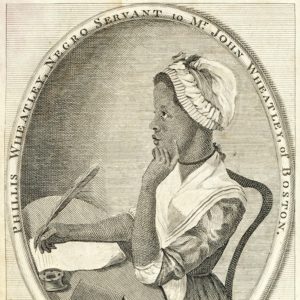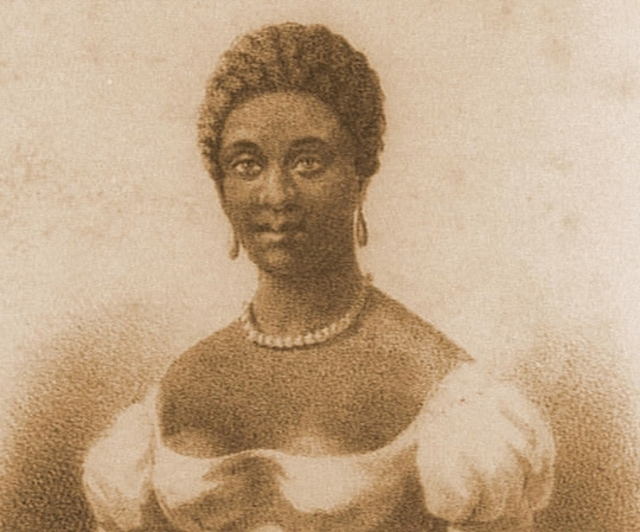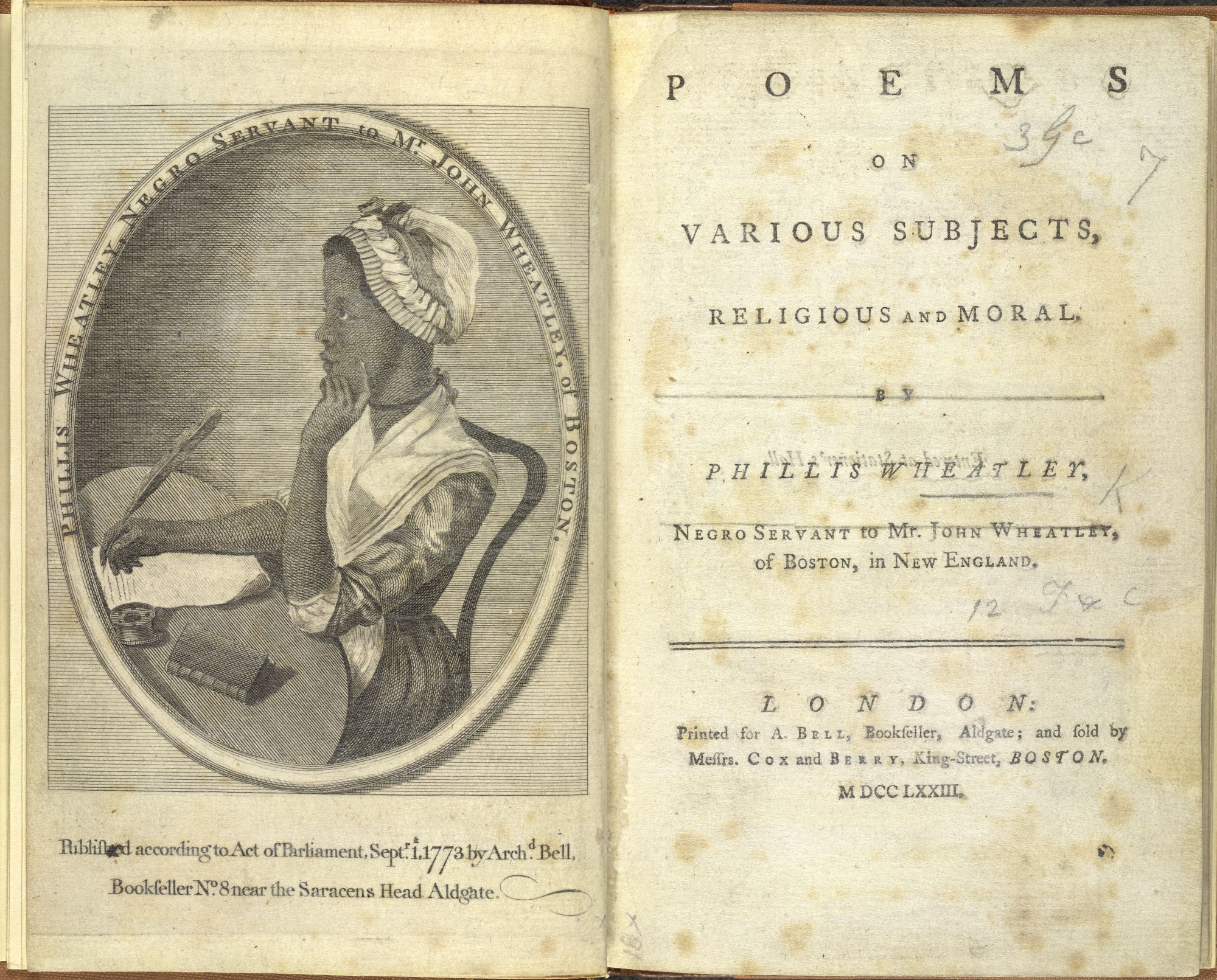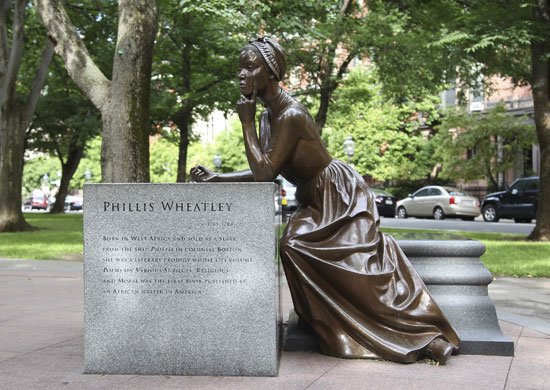About Phillis Wheatley
 Phillis Wheatley was born in west Africa and was a young child when she was brought to Boston on a slave ship in when she was approximately 8 years old. Wheatley was sold to John Wheatley who gifted her to his wife Susanna Wheatley. The couple taught Wheatley English, Classical literature, geography, history and the Bible. As young as ten, Wheatley began writing. Eventually, Wheatley began publishing poems focused on Christian piety in newspapers and other various publications. As Wheatley’s work became more popular, Susanna Wheatley organized a publicity tour in London. When she came back to Boston, she was emancipated. Wheatley’s work was read by affluent white men such as Voltaire, George Washington, and James Bowdoin. Knowing her audience, Wheatley’s writing was filled with allusions to classic works, used male pronouns,
Phillis Wheatley was born in west Africa and was a young child when she was brought to Boston on a slave ship in when she was approximately 8 years old. Wheatley was sold to John Wheatley who gifted her to his wife Susanna Wheatley. The couple taught Wheatley English, Classical literature, geography, history and the Bible. As young as ten, Wheatley began writing. Eventually, Wheatley began publishing poems focused on Christian piety in newspapers and other various publications. As Wheatley’s work became more popular, Susanna Wheatley organized a publicity tour in London. When she came back to Boston, she was emancipated. Wheatley’s work was read by affluent white men such as Voltaire, George Washington, and James Bowdoin. Knowing her audience, Wheatley’s writing was filled with allusions to classic works, used male pronouns,
Timeline of Phillis Wheatley’s life:
Gender Equity
- Wheatley was writing in 1770, which is a nearly a century before the Emancipation Proclamation. Thus, no black man or woman had any rights in the eyes of the law. Because of the lack of universal rights for Black people, Wheatley focused on racial equality rather than gender. Her advocacy work was primarily focused on anti-slavery which she conveyed by writing for white men which led to her proximity within white, affluent leaders. Her presence among this male society and her exceptional writing was a way of proving that Black women are intellectual which was not recognized at the time. However, I think that impact on the rights’ for black women is embodied by her exceptionality as a Black, women poet at the time.
- The poem titled, “To the University of Cambridge in New England”, which she read to white, educated men at Harvard, showed she was an exceptional Black women which many white men did not think was possible. Her presence as a lecturer was exceptional and countered many anti-black stereotypes and sexist ideas. She showed that not only could a Black person impart messages to some of the most highly educated and affluent men, but that Black women were able to do so.
“An Ethiop tells you ’tis your greatest foe”
–Phillis Wheatley, “To the University of Cambridge in New-England”
 Portrait of Wheatley
Portrait of Wheatley  Poems of Various Subjects, Religious and Moral
Poems of Various Subjects, Religious and Moral  Phillis Wheatley statue in Boston
Phillis Wheatley statue in Boston 

 Phillis Wheatley statue located in Boston in the Commonwealth Avenue Mall is part of monument that commemorates women from Boston that shaped American history.
Phillis Wheatley statue located in Boston in the Commonwealth Avenue Mall is part of monument that commemorates women from Boston that shaped American history.